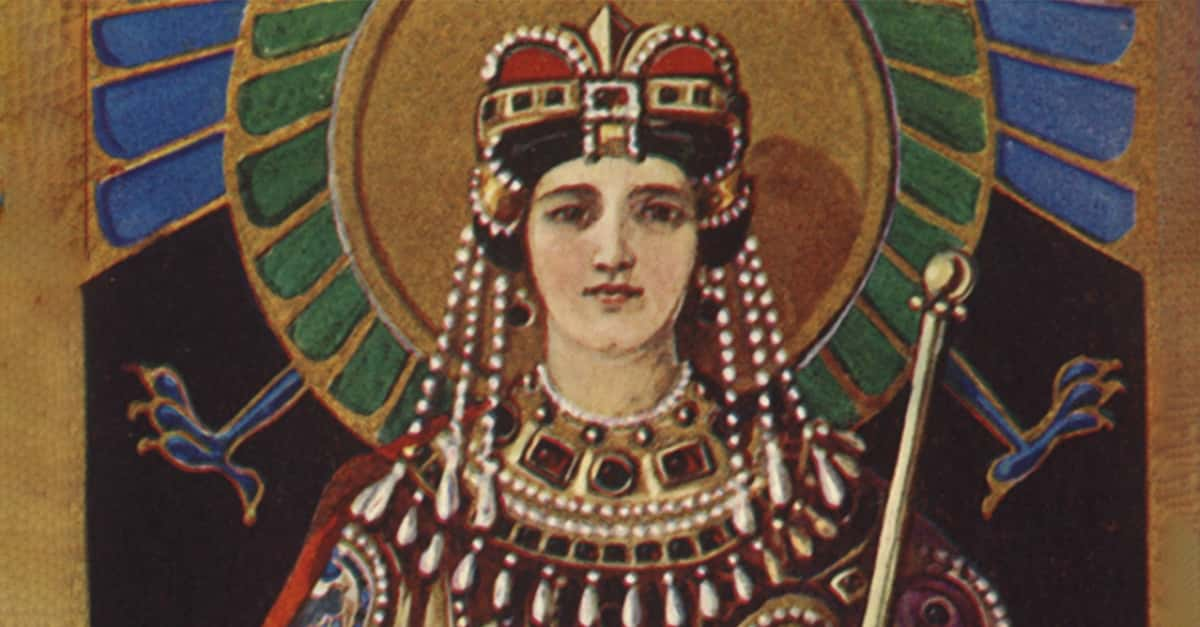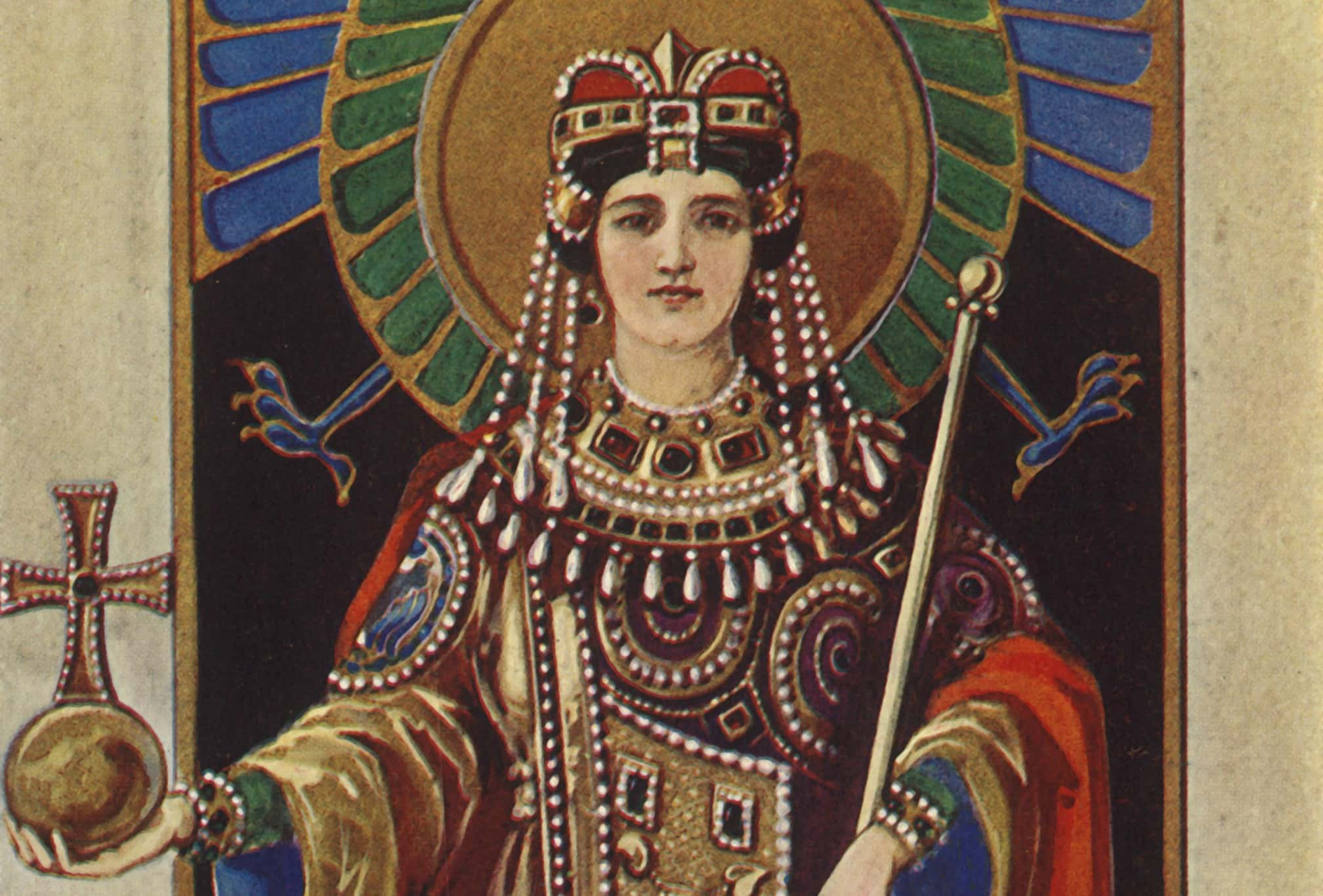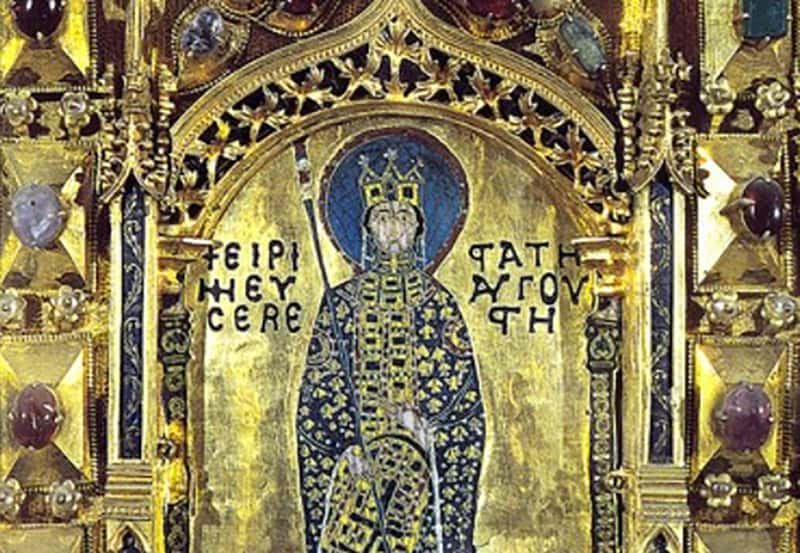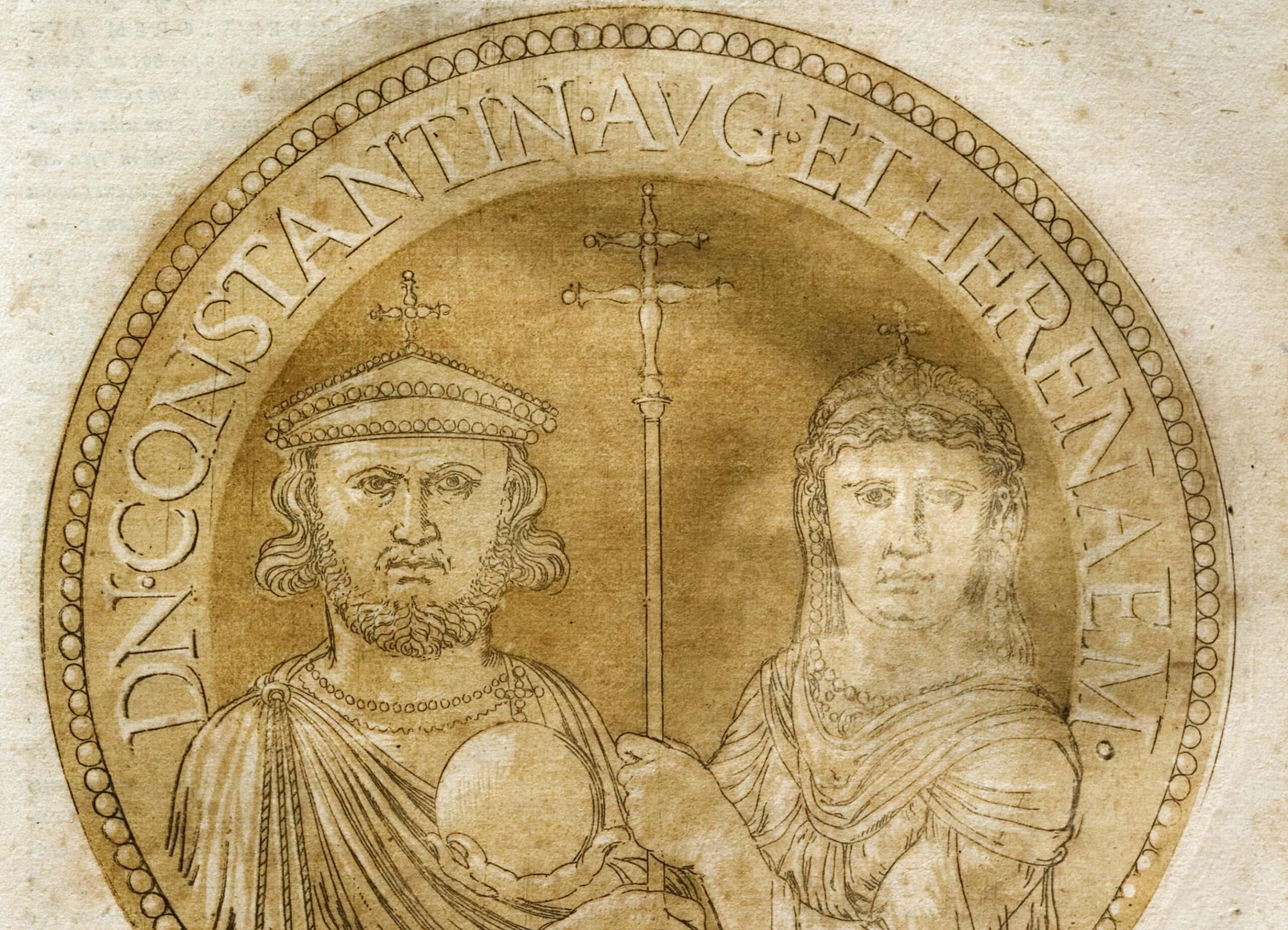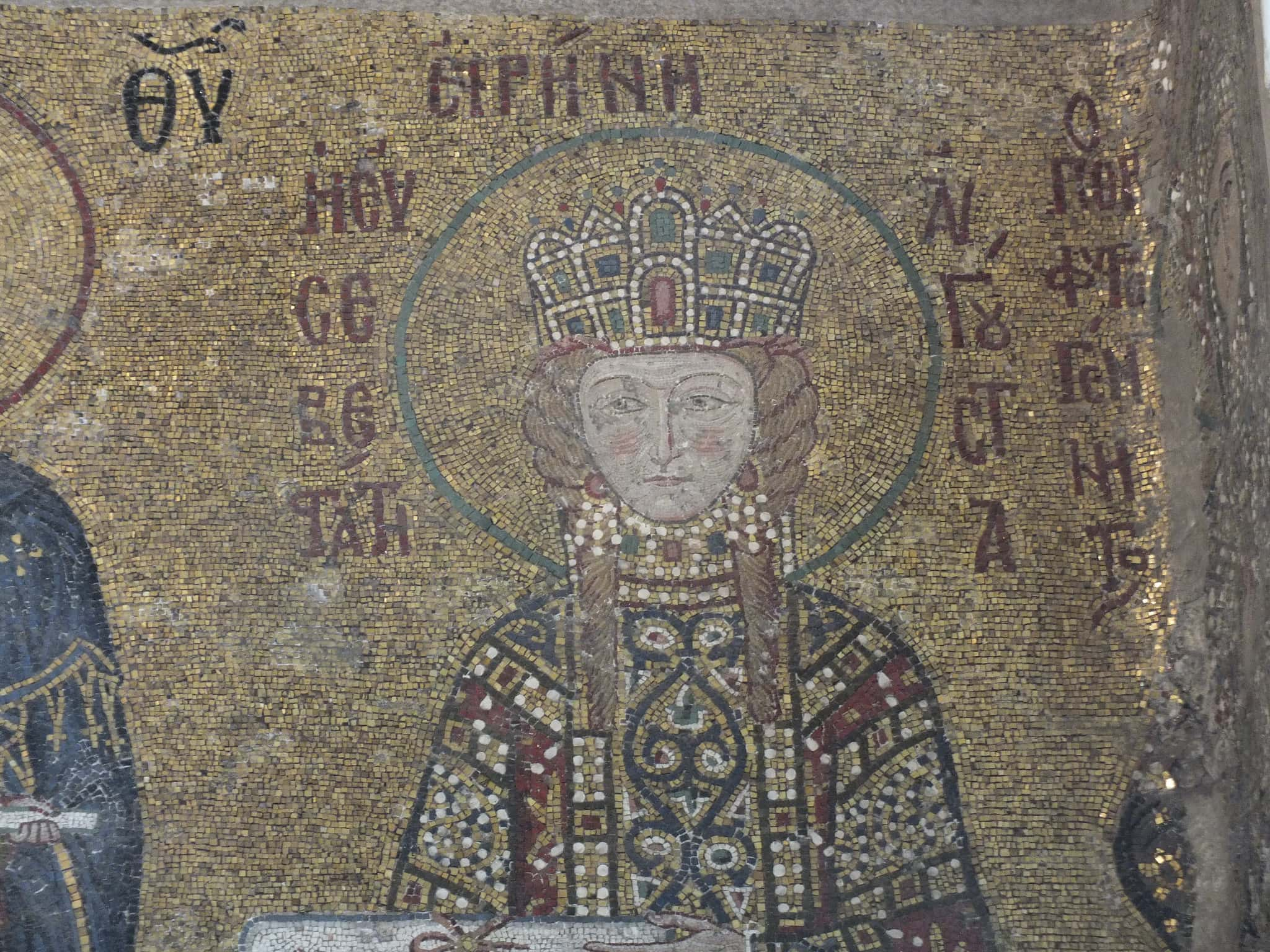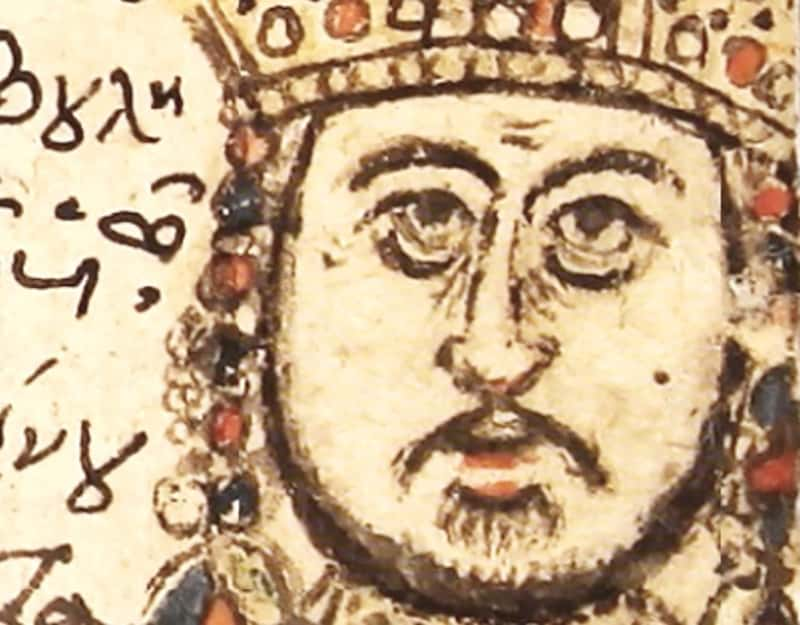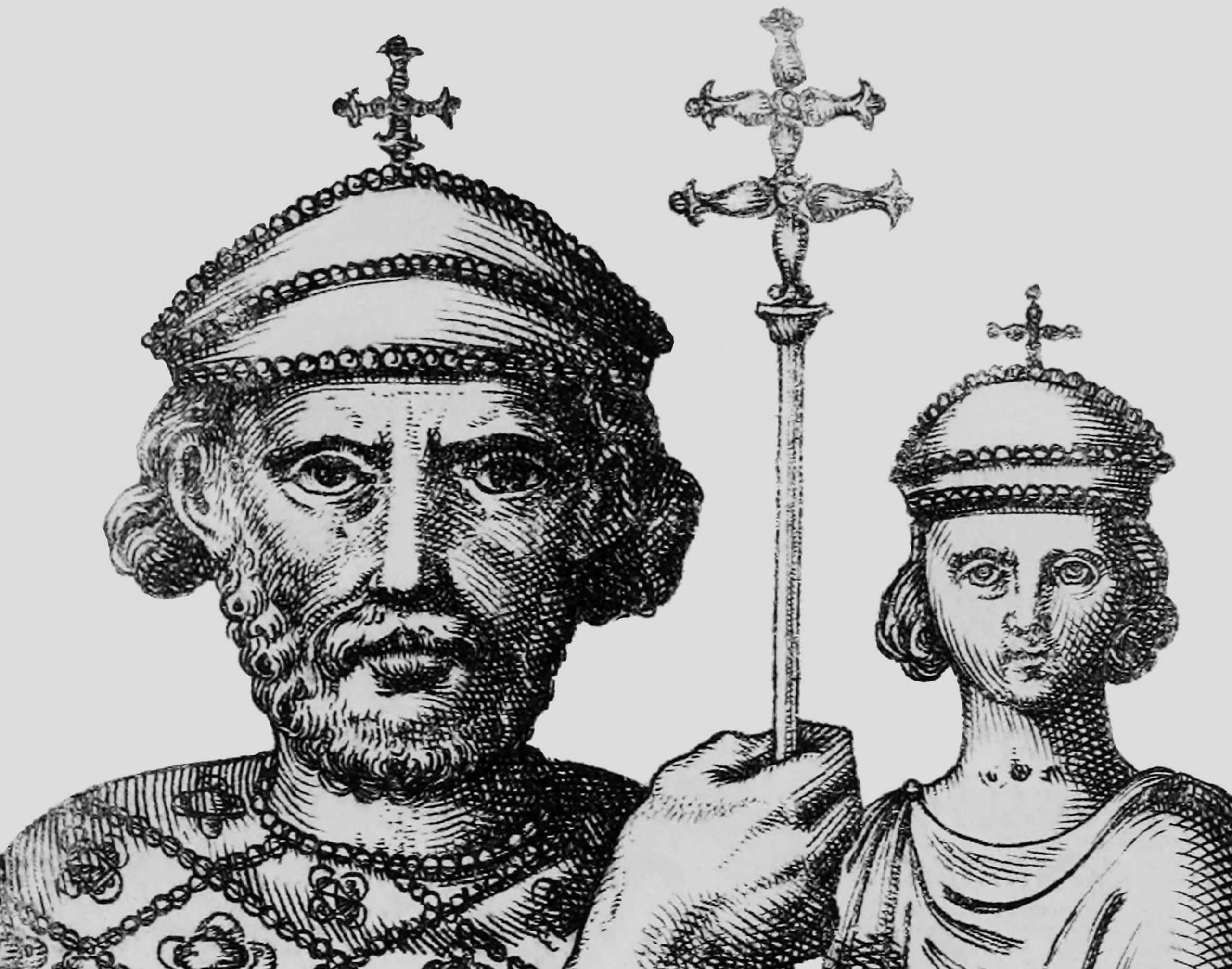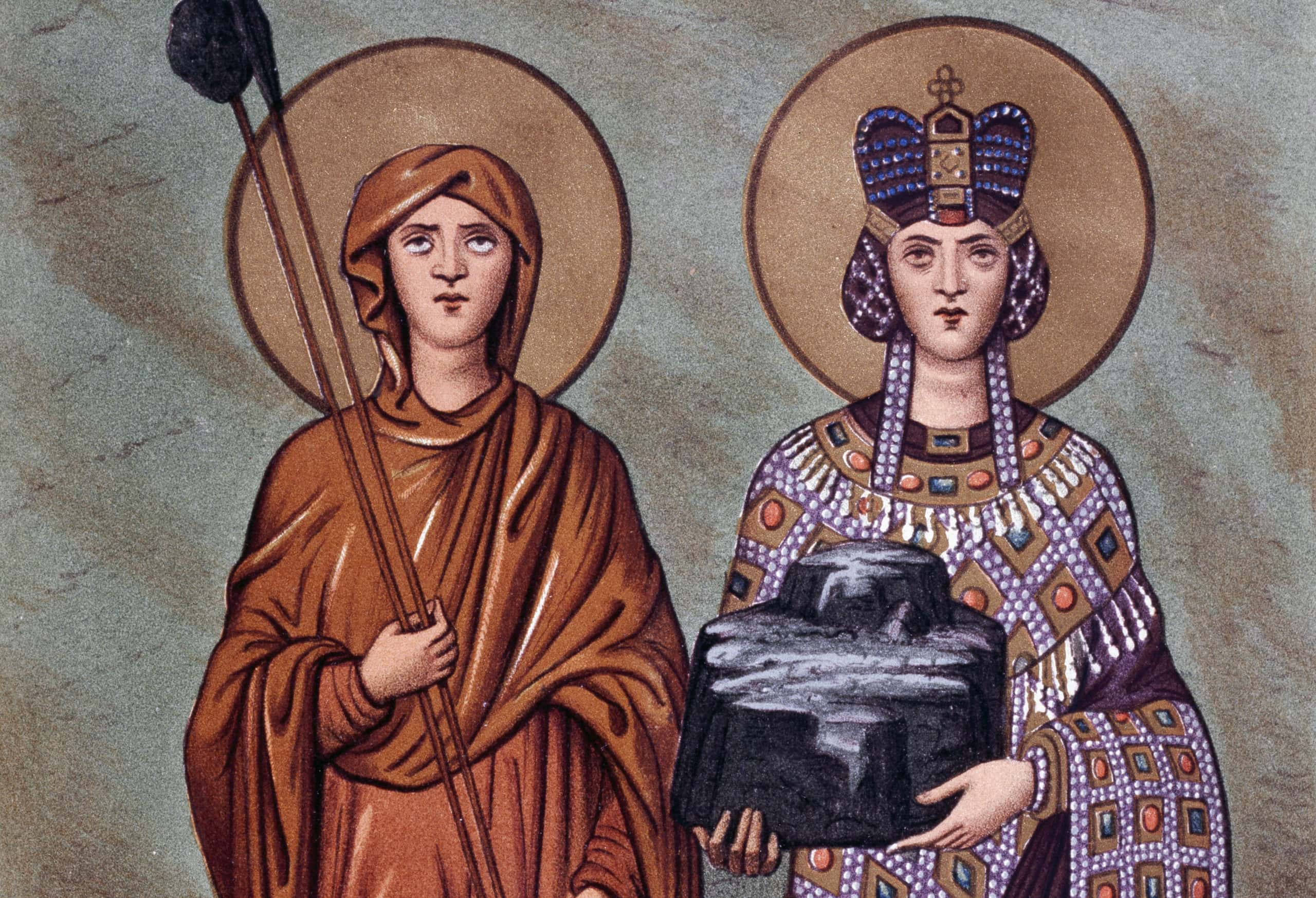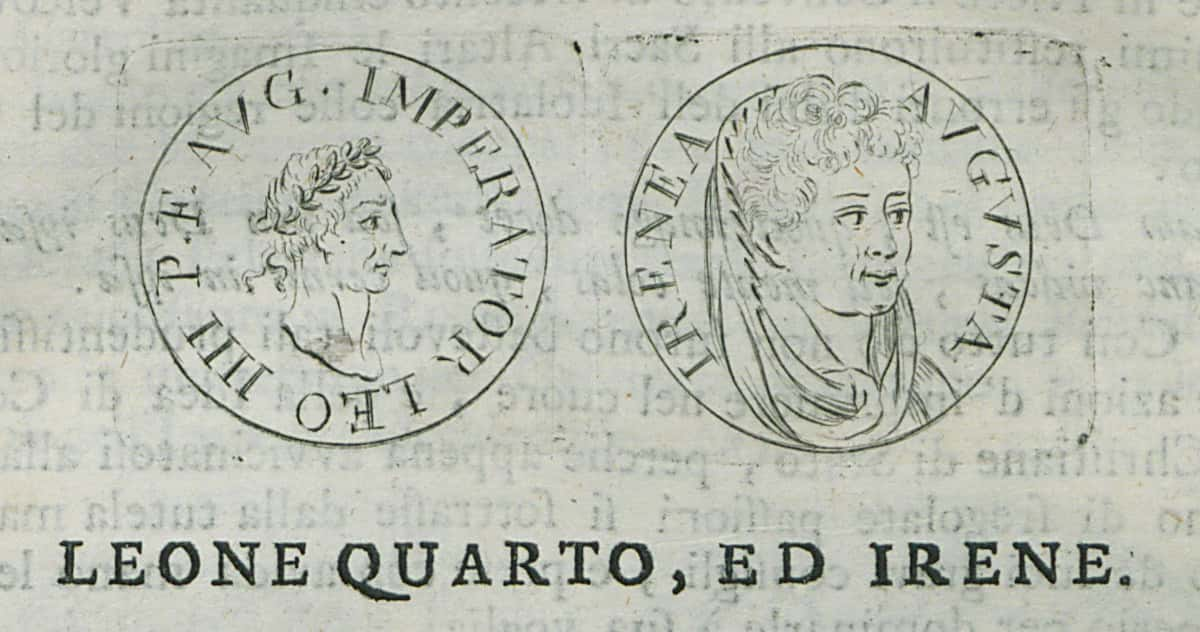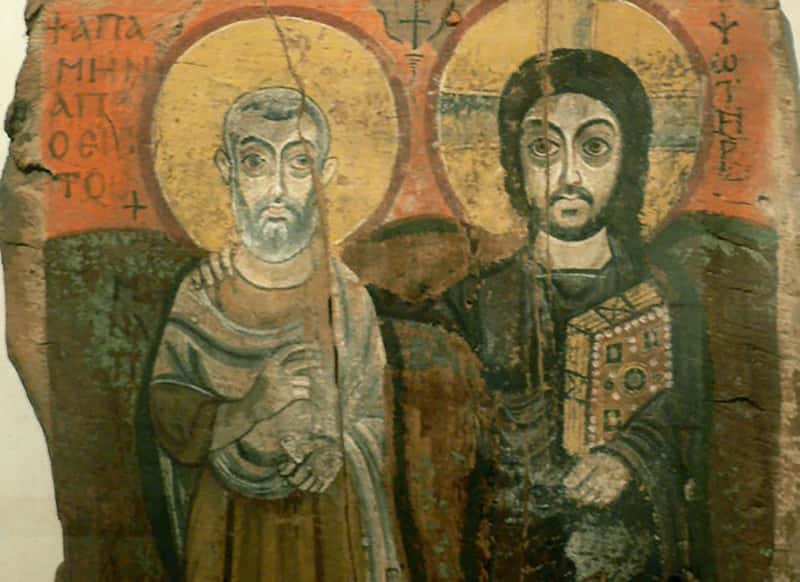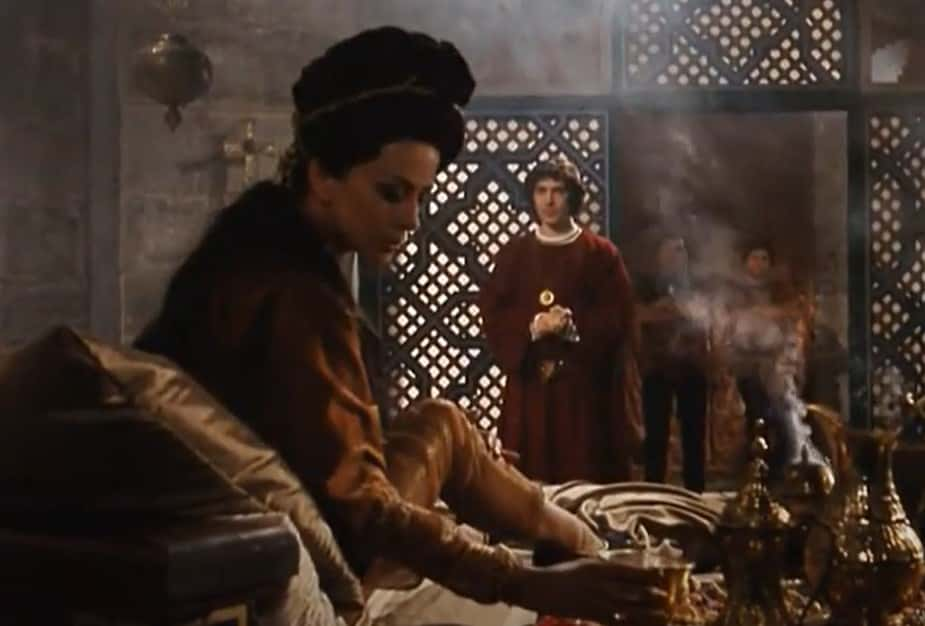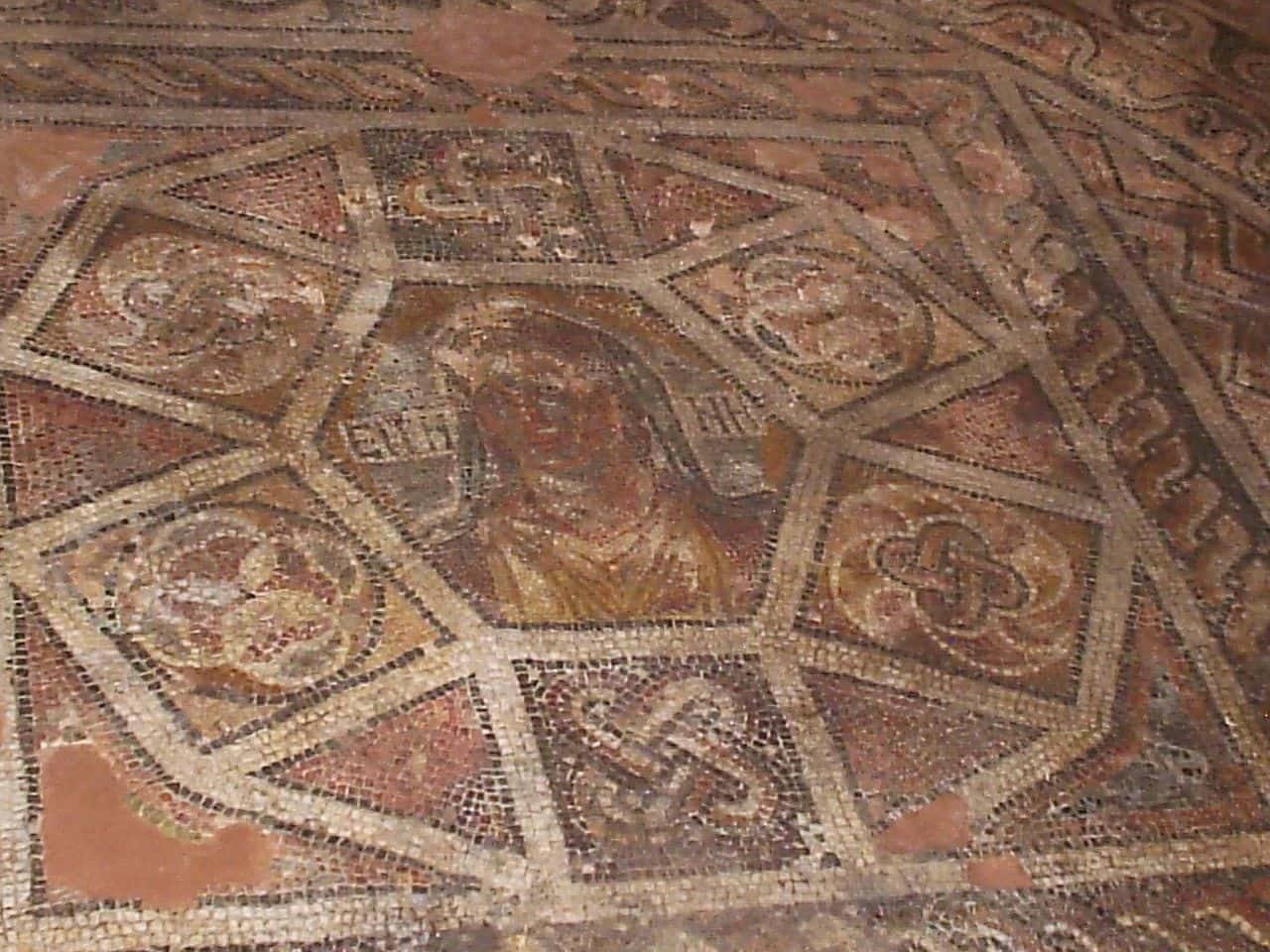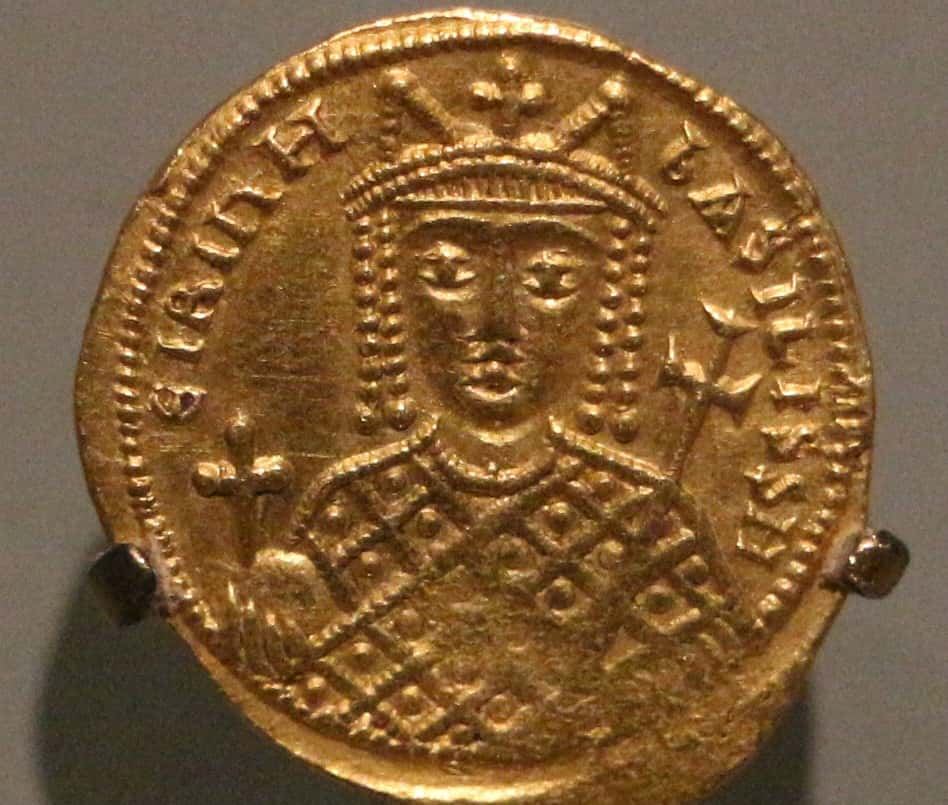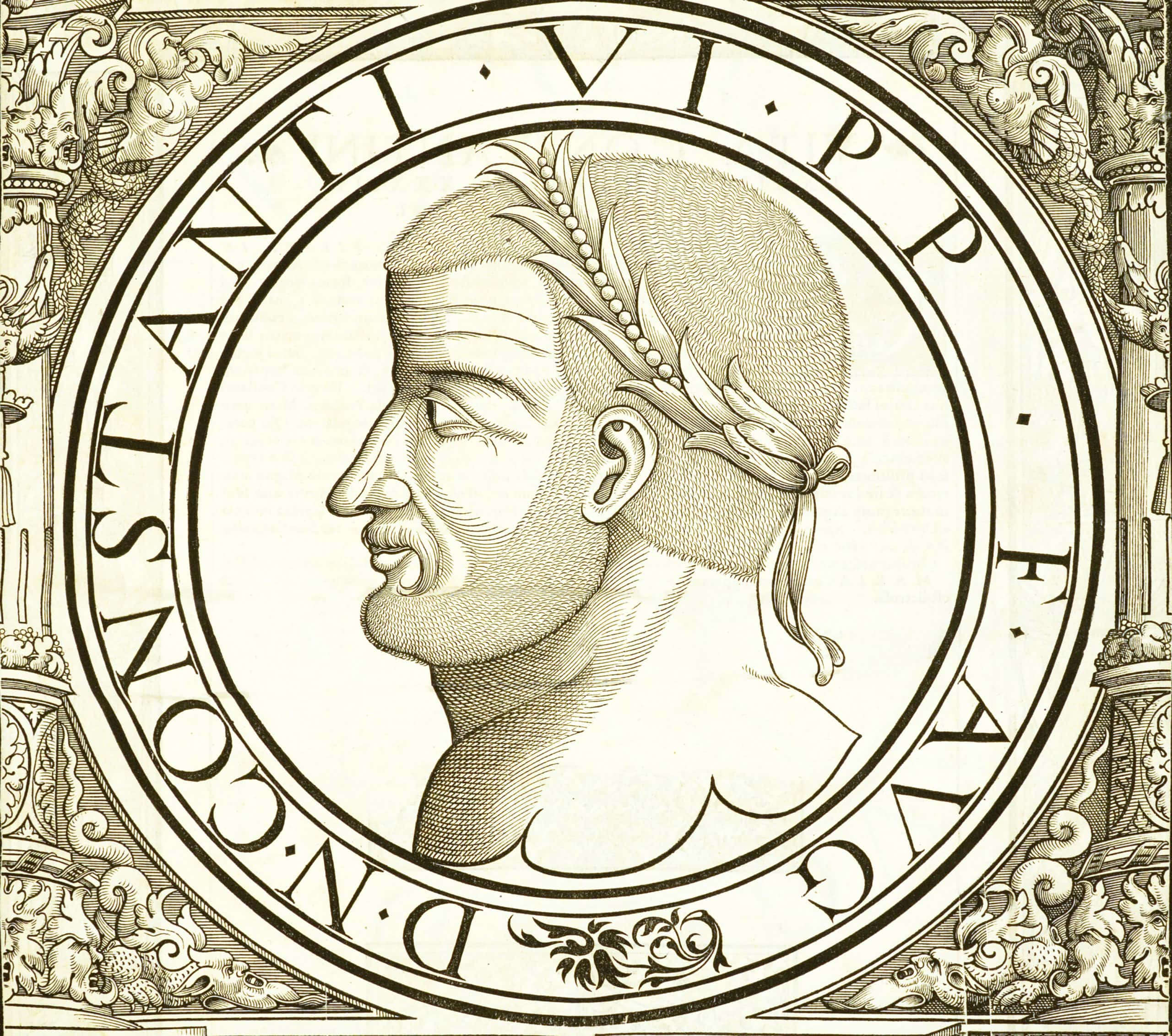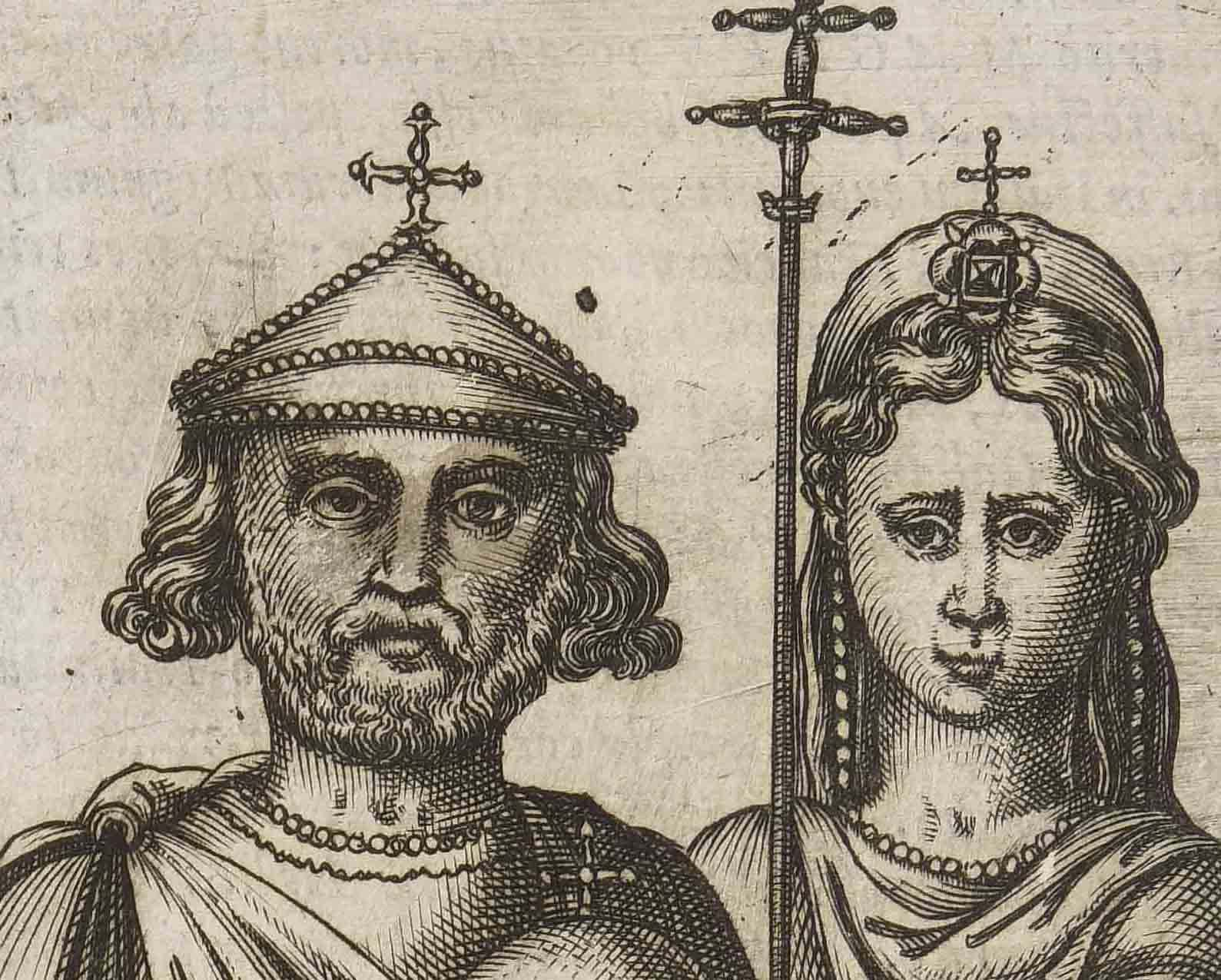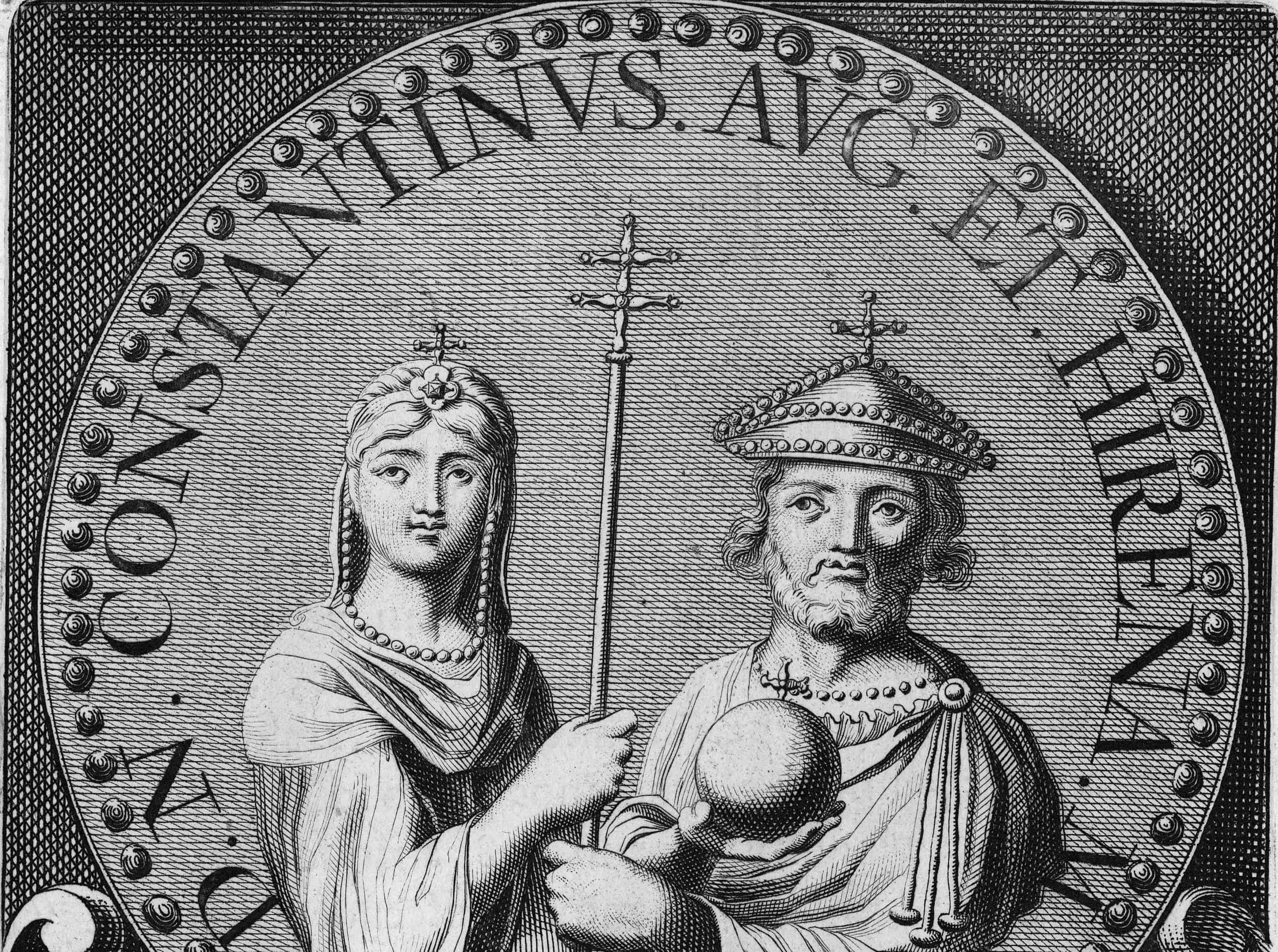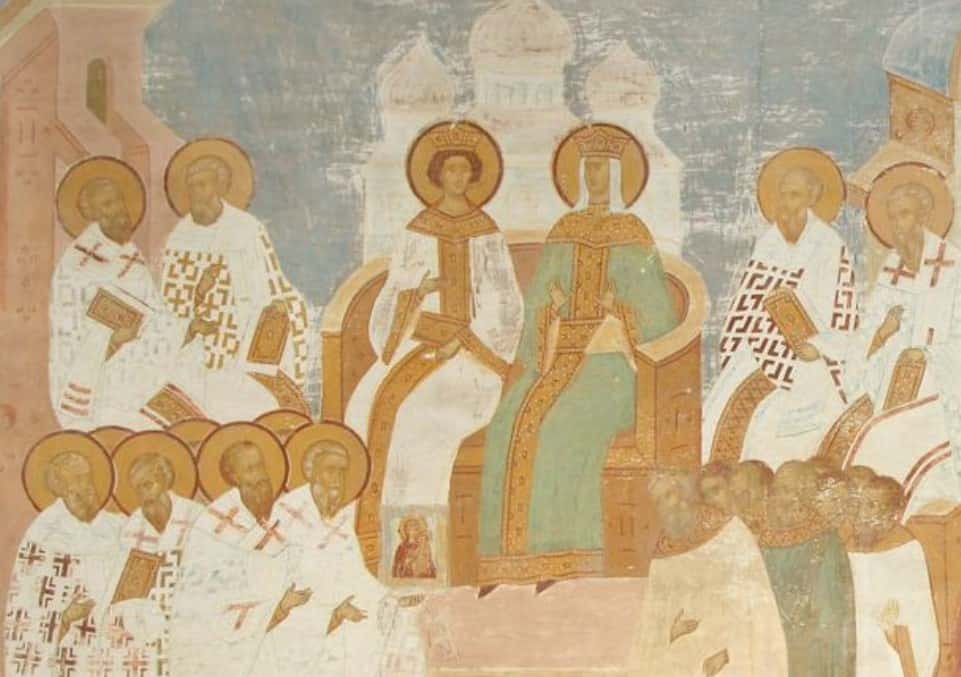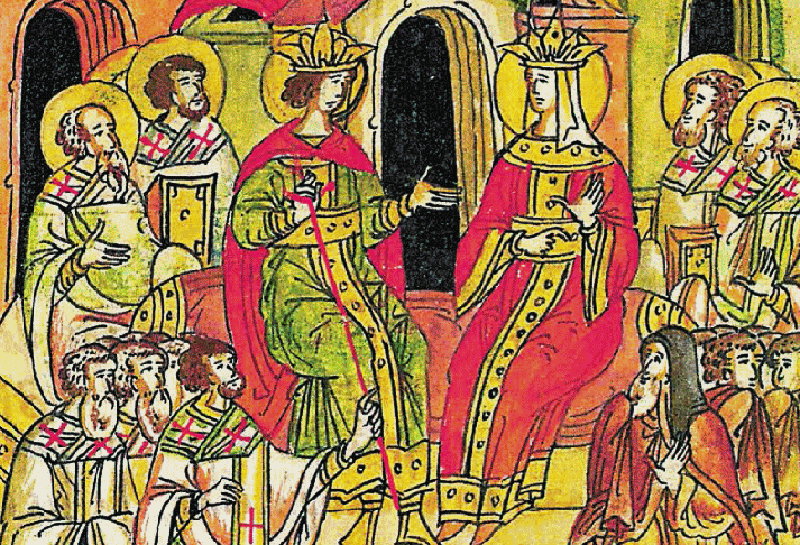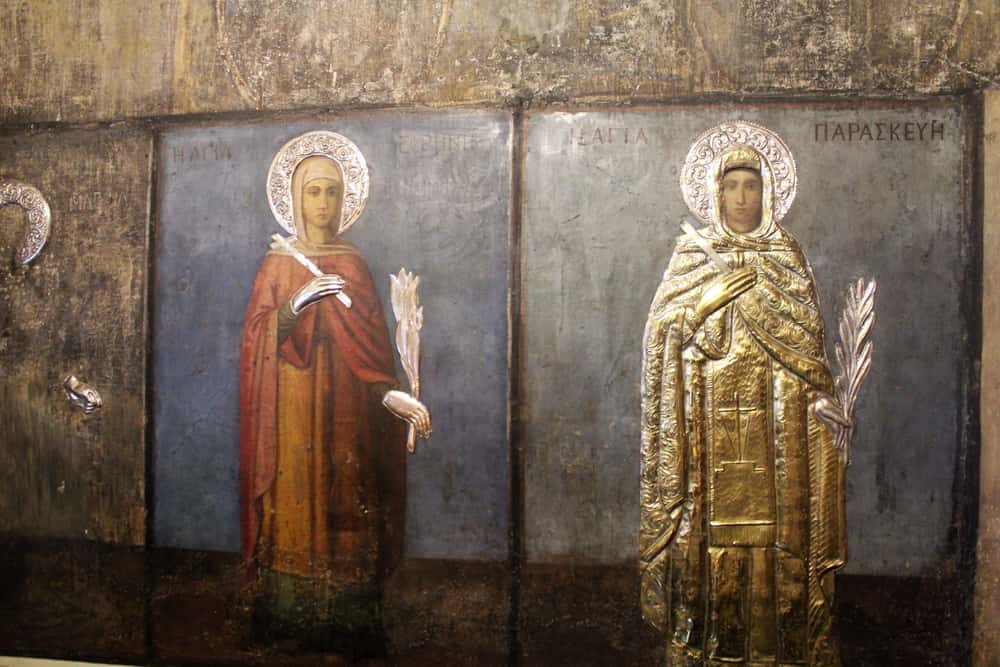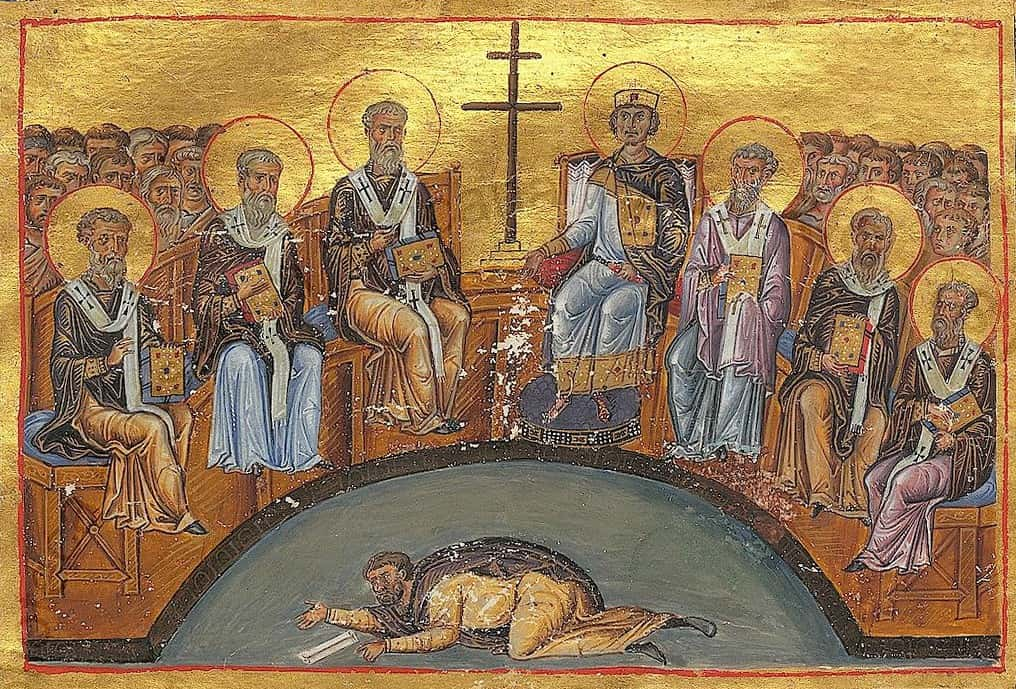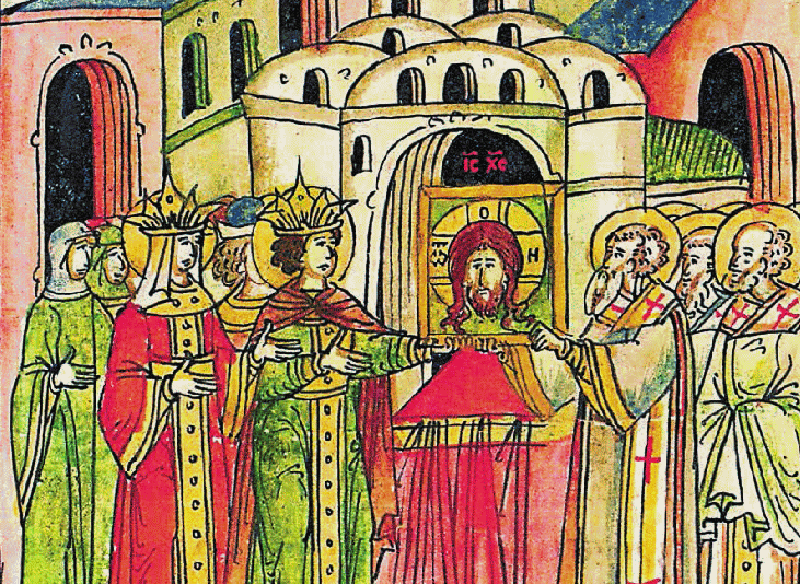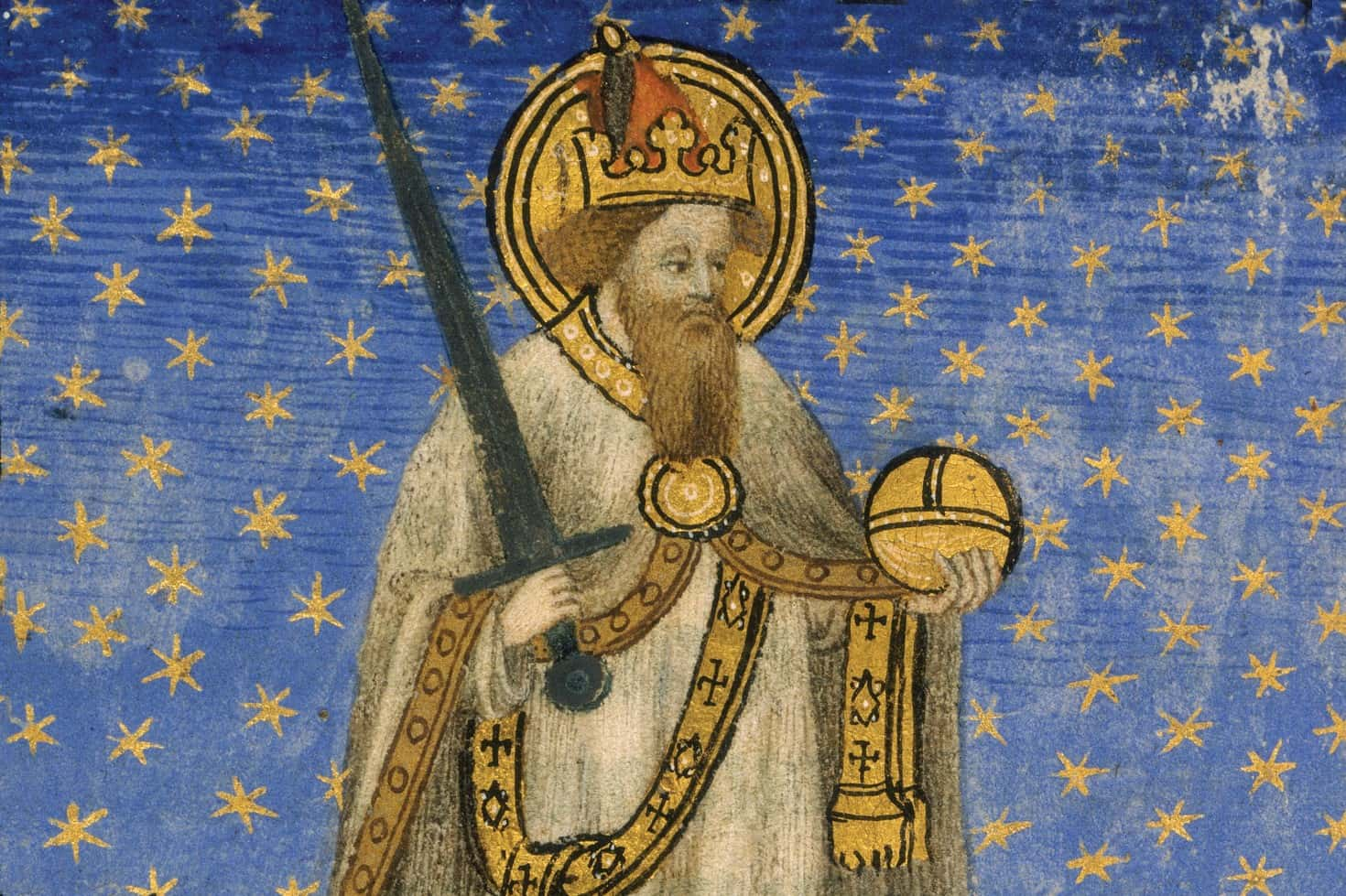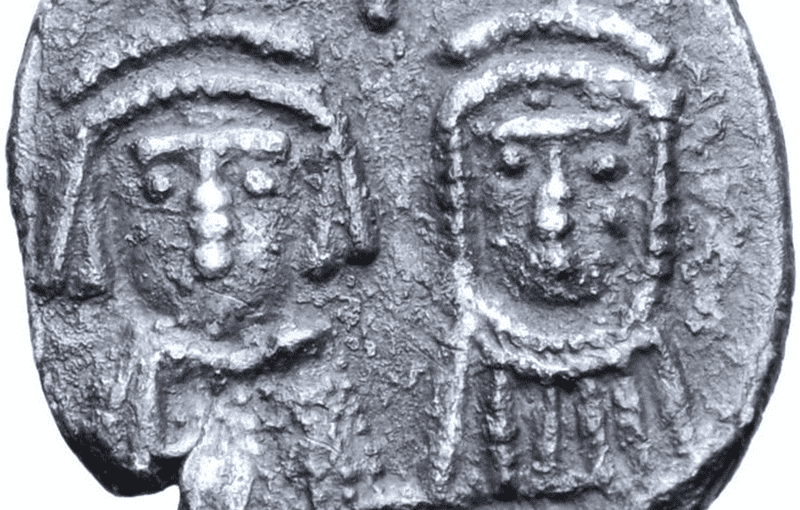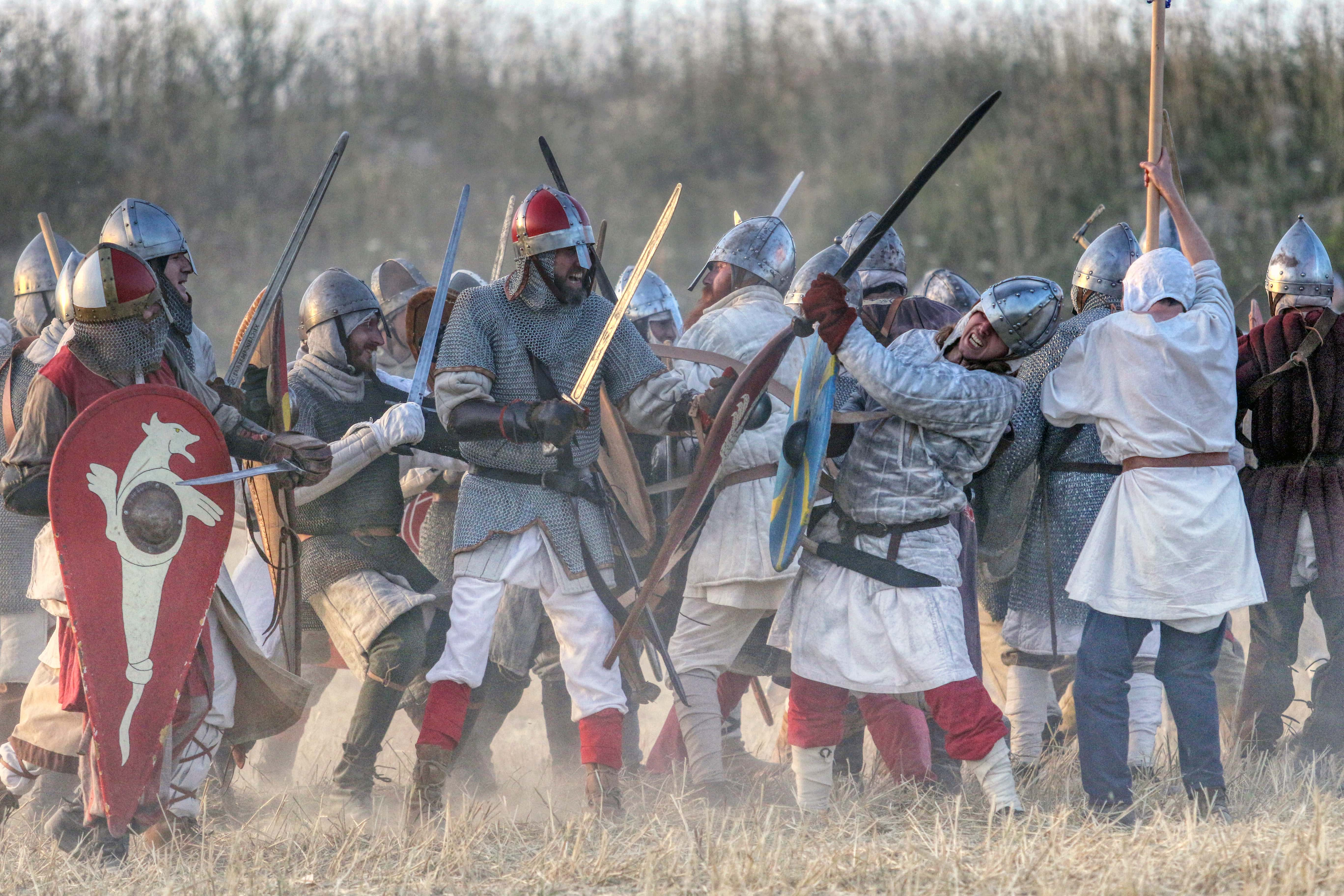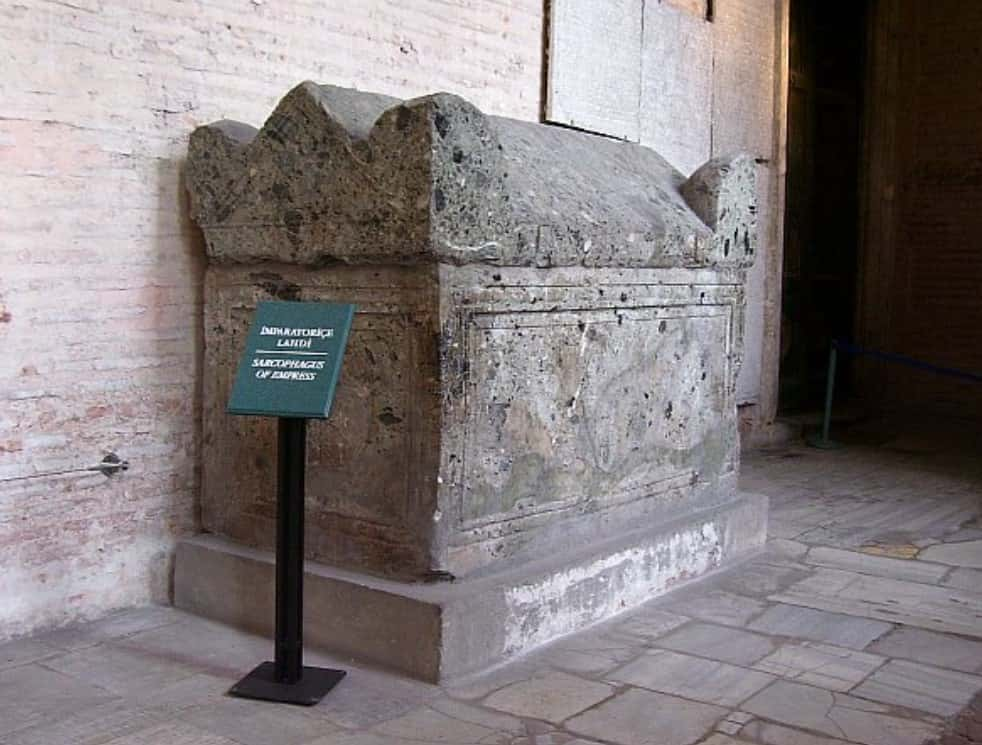Beauty, brains, and an iron will: Irene of Athens used all of these to stay in power in the cut-throat world of the Byzantine Empire. Officially, Irene may have been a regent for her son the Emperor, but unofficially? Everyone knew that she called the shots. Brace yourself: We're unveiling the story of Irene’s spectacular rise to power and her chilling fall from grace.
1. She Was A Blue Blood
Irene’s path to the throne of the Byzantine Empire was a twisted one—but she did have a leg up the beginning. Born in Athens around 750, she was a member of extremely influential and noble Sarantapechos clan. Only, there was a twist. Irene experienced immense tragedy from a young age, with both of her parents dying when she was a girl.
There was, however, one consolation.
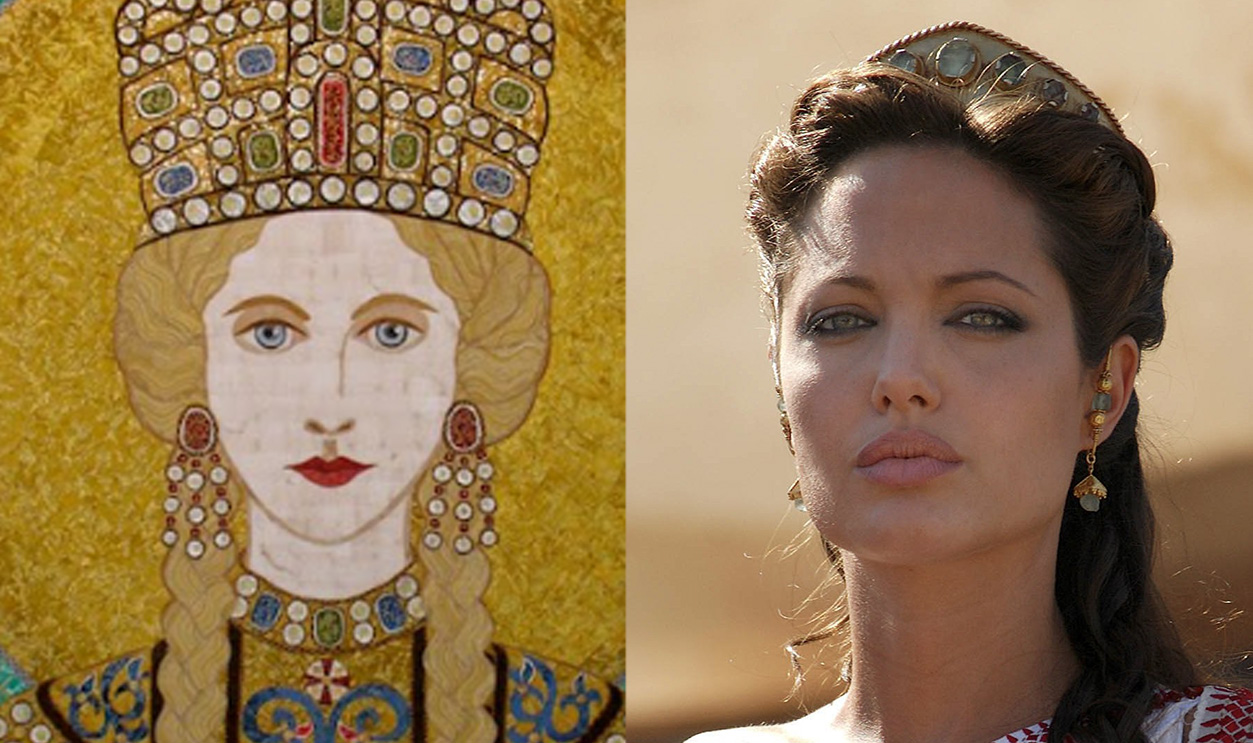
2. She Was Famously Beautiful
Although Irene’s lack of parental guidance may have given her some horrible maternal instincts (you'll see), Irene’s well-to-do relatives nonetheless raised her properly inside the upper echelons of Greek life. But that wasn’t all: Besides her accomplished education, Irene was also exceptionally beautiful…and she was about to put her good looks to great use.
3. She Was In The First Byzantine "Bride Show"
When she was still a teenager, the current Emperor Constantine V invited Irene to travel to Constantinople, the center of the Byzantine Empire. Some historians believe that while there, the Emperor put on the first Byzantine "bride show" for his son and heir, Leo. It’s as gross as it sounds: Young women paraded in front of the young man, and he picked the one he found the most beautiful.
Well, guess what happened.
4. She Became An Empress-In-Waiting
At the bride show, Irene’s great beauty helped her blow all the other high-ranking women out of the water. She and Leo married very soon after her arrival in Constantinople, tying the knot in November 769. It was a fairy tale likely beyond the orphan girl’s wildest dreams...but don't get too cozy. It soon turned into a total nightmare.
5. Her Marriage Was Doomed
One of the reasons experts believe Irene endured a bride show at all is because the new royal couple were just that incompatible, and couldn’t have possibly known each other well. The biggest issue was a deep one: While the ruling Byzantines were "iconoclasts" who were against any talismans depicting religious figures, Irene had "iconophile" sympathies and secretly loved images of saints.
And sure, this conflict might seem harmless today. But for Irene and Leo, it was the beginning of one of the most scandalous periods in Byzantine history.
6. She Was One And Done
Irene was nothing if not dedicated to the crown, and in 771 she gave birth to an heir, a boy they named Constantine after his grandfather. But even this happy news had a suspicious underbelly. Constantine was the only child—and as far as we know, the only pregnancy—that Leo and Irene ever had, indicating that even then their union was on the rocks.
But before the kingdom could get too leery, the tides turned again.
7. She Was A Young Empress
In 775, with Irene now dealing with a five-year-old son, Emperor Constantine V died, turning Leo into Emperor Leo IV and Irene herself into the Empress Irene, the official Byzantine consort. The royal couple was still young—Leo was just 25, and Irene herself was only in her mid 20s at most. As it turned out, this left them very vulnerable to the coming attack.
8. She Had Dangerous Relatives
Are you even an emperor if you don't have power-hungry relatives trying to kick you off the throne? Almost immediately after Leo became the head honcho of the Byzantine Empire, he and Irene learned that the job had other, let's say, interested applicants. Namely: His own half-brothers, who came out of the woodwork to challenge his reign.
Suddenly, though, Irene showed her true colors.
9. She Had A Steely Side
Up until now, it’s easy to think of Irene as playing the humble, sweet wife to Leo’s masculine Emperor role. Well, no more miss nice Irene. In response to her pesky in-laws’ attempts at the throne, Irene was the one to suggest a heartless punishment. Under his wife's not-so gentle guidance, Leo sentenced his own relatives to exile.
Unfortunately for the royal couple, this would probably be the last time they agreed.

History's most fascinating stories and darkest secrets, delivered to your inbox daily.
10. She Was One Half Of A Royal Sham
As Emperor and Empress, it was crucial that Leo and Irene present a unified front to their kingdom. They didn’t. While more lenient than his father, Leo was still devoted to the iconoclast cause. Meanwhile, Irene’s rebellious and dangerous love of religious imagery only grew deeper as the years went on. Until the day it all came crashing down.
11. Her Husband Turned Vicious
Irene’s husband had spent the first years of his reign flirting with the idea of some iconography being ok—but in 780, everything got flipped upside down. Leo began persecuting iconophiles like Irene left, right, and center, and he wasn’t nice about it. He detained his own courtiers, submitting them to whippings and humiliations such as shaving their heads.
Clearly, something had gone wrong…and the answer may lie in Irene’s own bedchamber.
12. She Was Hiding Two Tiny Secrets
We’ll never know for sure what set Leo off on his violent rampages of iconophiles, but historians have made a chilling suggestion. Some claim that one day, Emperor Leo lifted up Irene’s pillow, only to discover that his very own wife had hidden two offending, sacrilegious icons underneath it. His next actions were his most ruthless yet.
13. She Let Someone Else Take The Fall
According to the story, the clever, terrified Empress Irene insisted that she hadn’t known the icons were there, and that some evil iconophile courtiers must have snuck them in. All too happy to get vengeance, Leo then tracked the courtiers down and had them punished. Even so, he was far from fooled—he just took it out on Irene in an entirely different way.
14. Her Emperor Refused To Pleasure Her
After finding out about his wife’s secret stash, Emperor Leo was reportedly so disgusted with Irene—despite her denials—that he vowed never to sleep with her again. The trouble is, Leo didn’t have much time to inflict this creative punishment on his wife. Fate was coming for him, and it was going to change Irene’s life.
15. Her Husband Met A Sudden End
The very same year that Leo went on his rampage of all iconophiles, karma bit the royal family hard. Within months of his purges, the emperor fell seriously ill with a fever. Within days, he was dead, and Irene’s young son Constantine—then only nine years old—became the new emperor. But that’s when Irene really came into her own…and it was terrifying.
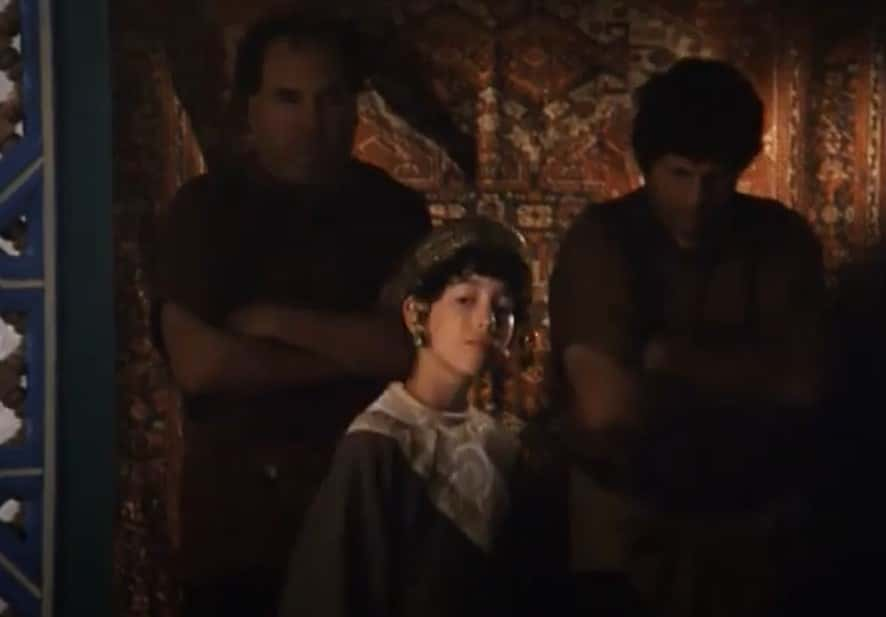 Charlemagne (1993), Pathé Télévision
Charlemagne (1993), Pathé Télévision
16. She Usurped The Crown
With her husband Leo getting cold in the ground and her son barely old enough to understand he was the new emperor, Irene took advantage of the power vacuum like a boss. Before Leo’s old courtiers could blink, Irene was the official regent over her son, and already ruling the kingdom with an iron fist. But she didn’t stop there.
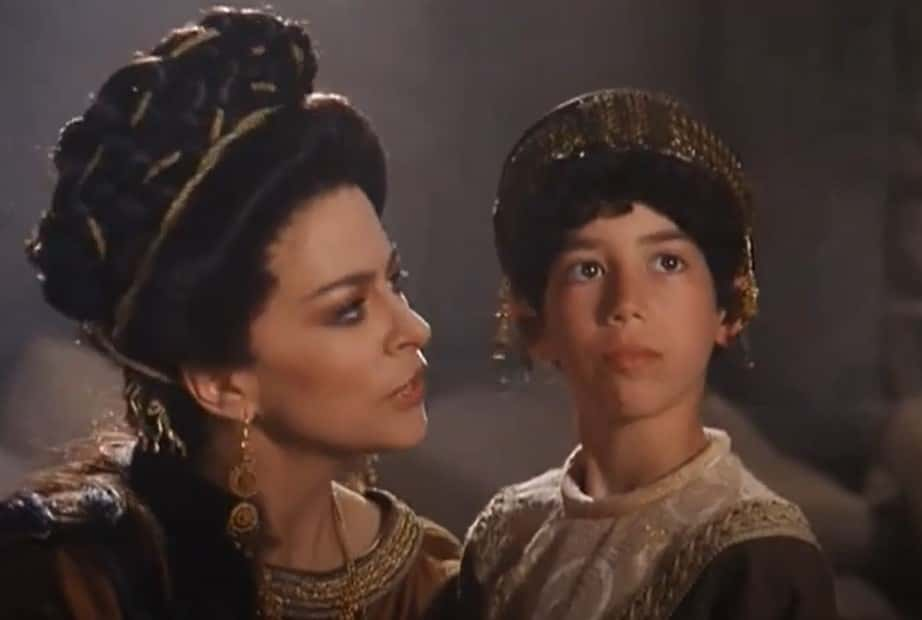 Charlemagne (1993), Pathé Télévision
Charlemagne (1993), Pathé Télévision
17. She Sullied Her Husband’s Name
In the weeks following Leo’s passing, Irene spread a vicious rumor about her late husband. She supported claims that Leo hadn’t actually died from a regular old fever, but rather his illness came as cosmic punishment for trying to wear the ornate, jeweled crown of one of the former Byzantine Emperors, a huge no-no. In short, she threw his memory right under the bus.
Then again, Irene may have wanted to distract people from some even darker whispers...
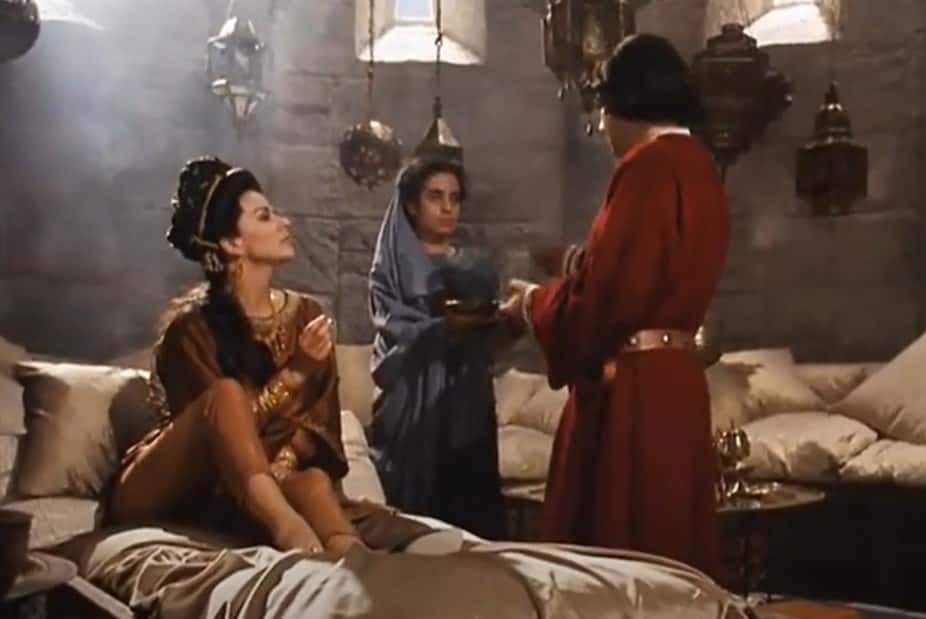 Charlemagne (1993), Pathé Télévision
Charlemagne (1993), Pathé Télévision
18. She May Have Poisoned Her Husband
There are many theories about just how and why Emperor Leo passed. Some other theories blamed his demise on poor health and stress (hey, being Emperor isn't easy). But perhaps the most scandalous is that Irene saw the tide was turning against her and, to get out of an increasingly uncomfortable situation, she poisoned her husband.
Whatever the truth, Irene definitely had no scruples when it came to getting and keeping power—and her subjects were about to find that out the hard way.
19. She Earned A Powerful Enemy
Less than two months after she became regent, Irene’s new courtiers were already chafing under her ambitions. After all, how could a woman take power? Angry, they plotted her downfall, calling one of Emperor Leo’s half-brothers (again), Nikephoros, to come pry the throne out of her grasping hands. Oh boy, did they end up wishing they’d stayed obedient.
 Charlemagne (1993), Pathé Télévision
Charlemagne (1993), Pathé Télévision
20. She Doled Out An Ironic Punishment
Some Byzantine courtiers could be forgiven for still thinking the former consort was a push-over. But they soon realized just how ruthless Irene was. When she discovered the plot against her, Irene didn’t hold back: Using the same punishments favored by her late husband, she rounded up the conspirators and had them flogged and their heads shaved.
Then she went one step further.
 Charlemagne (1993), Pathé Télévision
Charlemagne (1993), Pathé Télévision
21. She Made A Brilliant Tactical Move
Empress Irene saw this failed conspiracy for opportunity it was. She not only punished the men, she banished them from their former high positions, then replaced them with men who were unfailingly loyal to her and her vision for the empire. That way, her power was completely secure to use as she wanted. Um, and then she sweetened her own deal.
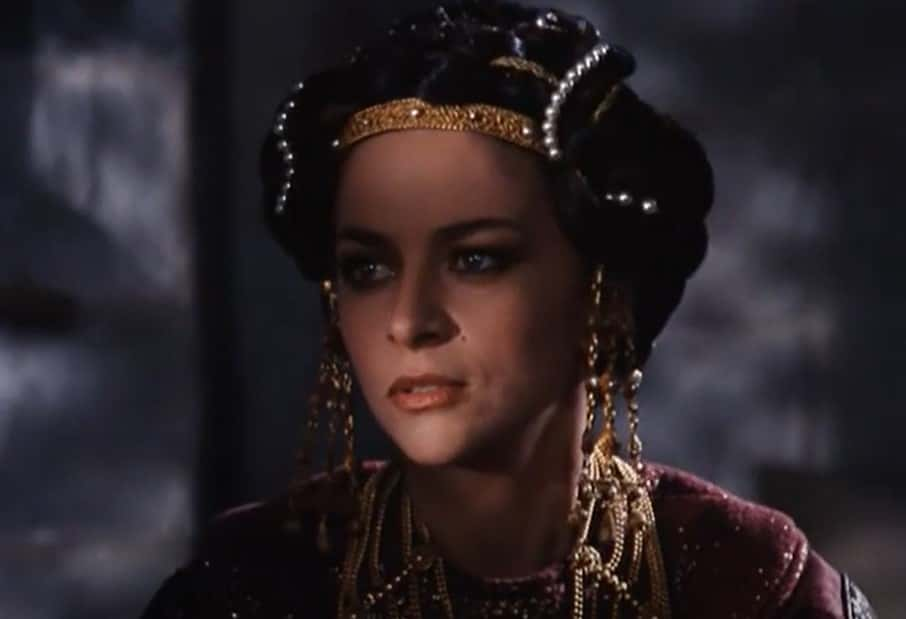 Charlemagne (1993), Pathé Télévision
Charlemagne (1993), Pathé Télévision
22. She Humiliated Her Brother-In-Law
In addition to her punishments for Nikephoros and his allies, Irene also "gifted" them positions as priests at the famous Hagia Sophia in Constantinople. And sure, that seems like a merciful compliment….until you realize the stunning truth. Taking up the cloth barred the wily Nikephoros from ever ruling in the future. Darn, girl.
Suddenly, now everyone in the empire knew they were dealing with one smart cookie. But Irene was on to even more cunning tactics.
23. Her In-Laws Despised Her
Fearing that she'd probably put her in-laws' backs up with her recent actions, Irene made an effort to extend an olive branch to her husband’s naughty family. She did this by offering his sister Anthousa the opportunity to become co-regent with her. It didn’t go as planned. In a pointed indication of the family’s scorn, Anthousa refused to rule alongside her sister-in-law.
No problem, Irene knew just what to do.
24. She Was A Master Propagandist
In the coming months, Empress Irene solidified her power in a breathtaking way. Elbowing her own son Constantine right to the sidelines, she put her name first and foremost on all coins and documents of the time, positioning herself as his (more powerful) co-ruler, not his regent. And then she tried to control him in the bedroom.
25. She Treated Her Son Like Chattel
Nothing says "political genius" in the Byzantine Empire like forging an advantageous marriage, and Irene soon began looking around for a young bride for her son to solidify her—I mean his—power. Her gaze landed on Rotrude, a daughter of Charlemagne. As always, Irene had chosen well: Charlemagne was then a powerful mover and shaker in the Western Roman Empire, Byzantine’s counterpart.
Seeing that she could use Charlemagne’s influence, Irene took her cunning to the next level.
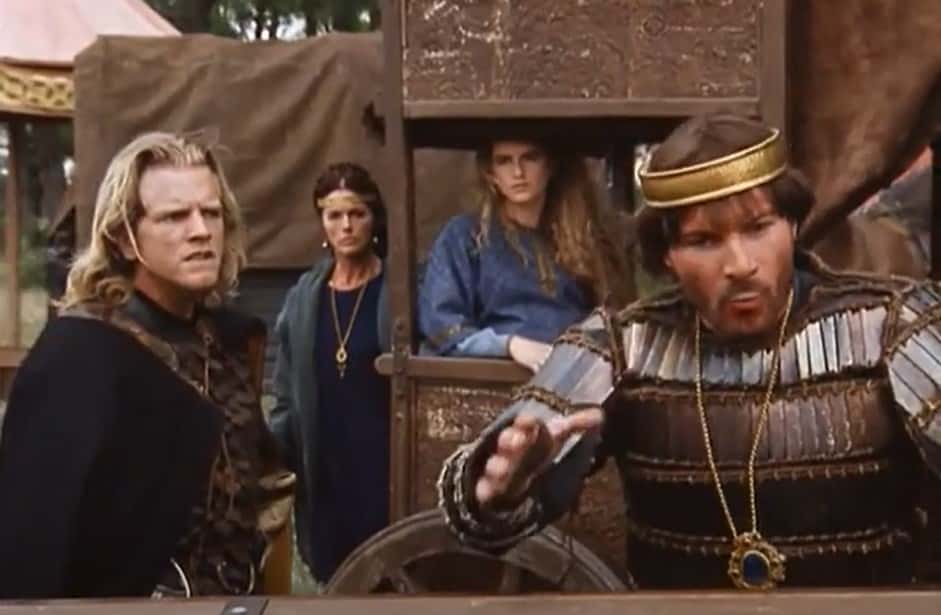 Charlemagne (1993), Pathé Télévision
Charlemagne (1993), Pathé Télévision
26. She Seduced A Young Girl
No one could seduce like Empress Irene when she wanted to, and she lavished attentions on the girl, even sending a personal tutor to teach the Germanic princess some Greek. On the other side of the equation, she fully convinced her son Constantine that Rotrude was the girl for him. And then in an instant, she betrayed everyone.
 Charlemagne (1993), Pathé Télévision
Charlemagne (1993), Pathé Télévision
27. She Was A Monster-In-Law
By 787, the still-teenaged Constantine was desperately looking forward to marrying Rotrude, and Charlemagne was all-in for the new alliance. But Irene now had other ideas. The political tides had shifted and Charlemagne was no longer useful to her, so she cut the engagement off. Looking back, this may have been the beginning of the end of her happy family.
 Charlemagne (1993), Pathé Télévision
Charlemagne (1993), Pathé Télévision
28. She Forced Her Son To Marry
Not only did Irene end her son’s engagement to Rotrude, she also still insisted on selecting his next fiancee. Ironically, she chose the prospect, Maria of Amnia, through a bride show—the same unromantic chattel-y way that Irene herself got to be Empress. Constantine dutifully tied the knot with Maria…but the entire time, he was plotting revenge.
29. Her Son Hated Her
As Constantine grew older, he also grew ever more aware that his meddling mother was siphoning off his power—not to mention ruining his weddings. His reaction was infamous. In the late 700s, he staged a small but powerful rebellion to take control of the throne that was (to be fair) rightfully his. Irene’s response was bloodthirsty.
30. She Was Terrifyingly Spiteful
All teenagers have their rebellious periods, but Irene wasn't understanding in the least about Constantine's royal tantrum. After crushing his little attempt at autonomy, she punished him by turning around and insisting that everyone in the palace take an oath of fidelity to her and her alone. It was a smack in the face for Constantine, and an explicit assertion that she was the one in power here.
Things were starting to heat up in Irene’s kingdom, and she was about to make them hotter.
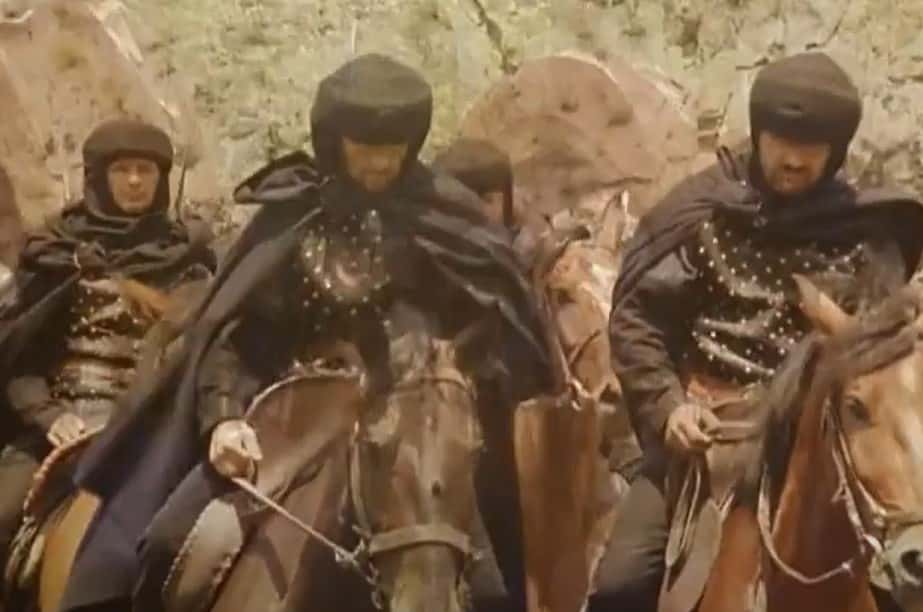 Charlemagne (1993), Pathé Télévision
Charlemagne (1993), Pathé Télévision
31. She Let Her Freak Flag Fly
In the 780s, Empress Irene executed her most ambitious coup yet. After years of laying in wait, she finally revealed her iconophile tendencies in public and allowed people to worship the images of Jesus Christ, the saints, and other religious figures as freely as they wanted. Again: Maybe a bizarre sticking point to us now, but utterly defiant at the time.
Unfortunately for Irene, it led right to her downfall.
32. Her Own Courtiers Betrayed Her
By 790, Irene’s son Constantine was beside himself with frustration and ambition for his throne, and her courtiers were none too happy with her either. Suddenly, the discontent bubbled up into true rebellion: Soldiers took arms against her, proclaiming Constantine as the true Emperor and Irene as a mere pretender. Worst of all, this time it worked.
After a decade of nearly unchallenged power, Irene was humiliated and stripped of her titles. It only made her hit back that much harder.
33. Her Successor Failed
With Irene out of power, everyone thought this "weird' period of a woman ruling was done for at last. But fate had other plans. As it turns out, running a kingdom wasn’t as easy as Irene had made it look, and her son Constantine VI failed spectacularly. Within months he was scrambling, barely fending off attacks from his other relatives.
Meanwhile, Irene watched from the sidelines, smug as heck. And then she got exactly what she wanted.
34. She Made A Smug Comeback
In 792, Constantine came crawling right back to his mommy, begging Irene to come back to court and help him clean up the mess he'd made. To sweeten the deal, he even offered her back her title of "Empress"—not that Irene would have accepted anything less. She agreed, and for a time mother and son reigned as co-rulers once more...until Irene plotted her baby’s dark demise.
35. She Sabotaged Her Son
Irene never forgave and she never forgot. So while she may have been back in her son’s good graces, he certainly wasn’t back in hers. Her betrayal was typically brilliant. Knowing it was dangerous to outright double-cross her son, Irene soft-launched her rebellion with a number of sly moves that helped undermine Constantine.
At one point, Irene "helpfully" suggested that Constantine tattoo the word "traitor" on the faces of 1,000 of his least successful soldiers, a very stupid decision that predictably plummeted the Emperor’s popularity. Then came the killing strike.
36. Her Son Disgraced Himself
In the end, the straw that broke the camel’s back was Constantine himself—namely, his scandalous bedroom habits. See, Constantine’s marriage to Maria of Amnia had been utterly miserable, and he decided to divorce her in a blaze of infamy and take up with his mistress, Theodote. While the kingdom erupted with outrage, Irene saw her opportunity. And boy, was she vicious.
37. She Shored Up Her Power
After five years of ruling "beside" her son, Empress Irene put her ruthless plot into action. She had been quietly gathering allies on her side and, sensing Constantine’s weakness, she now unleashed her supporters on him. Her influence was so far reaching that even when Constantine fled the province in terror, his mother’s friends were there to catch him.
Of course, that wasn’t the end of the horror show. It was only the start.
38. She Imprisoned Her Son
Now that Irene had her runaway son in hand, she had her allies carry him through a brutal voyage as her own personal prisoner. The group dragged Constantine all the way from the Asiatic shore of the Bosphorus Strait, where he had fled, back toward her waiting and not-so-loving arms in Constantinople. Once he got there, he was in for one of the most infamous fates in history.
39. She Gouged Out Her Own Son’s Eyes
Empress Irene was now just about done playing games with her prodigal son. So she hit him with an utterly brutal punishment. Employing a favorite execution strategy of the Byzantines, Irene had her men gouge out Constantine’s eyes on August 19, 797. Yes, she really did that to her own son, giving new meaning to the term "family feud". And that’s not all.
40. She Has A Dark Legacy
This whole "mommie dearest" situation has a macabre coda to it. Namely, there is a slight chance that Constantine actually survived this gruesome event. Not that it helped him much. If he did live, Irene kept her now-blinded son under her thumb entirely, and Constantine was definitely dead less than a decade later. Irene, meanwhile, was just getting warming up.
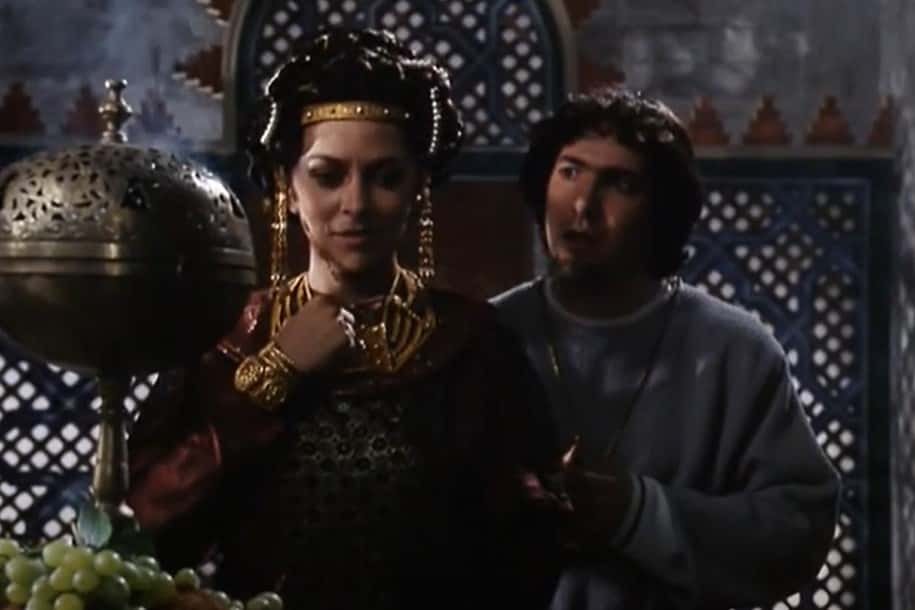 Charlemagne (1993), Pathé Télévision
Charlemagne (1993), Pathé Télévision
41. She Was One Of A Kind
With Constantine VI blinded, heirless, and out of the way for good, there was nothing stopping Irene from ruling not just as regent, but as sole Empress of the Byzantine Empire in her own right. Nothing, that is, except precedent: She was the first woman to ever make a claim like that, and it was about to rebound right in her face.
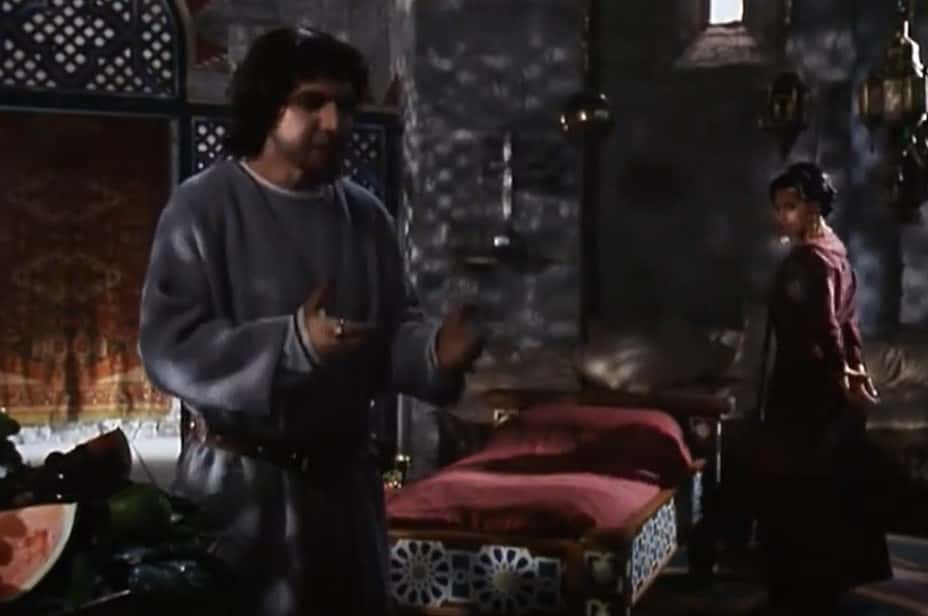 Charlemagne (1993), Pathé Télévision
Charlemagne (1993), Pathé Télévision
42. The Rest Of The World Was Against Her
Irene just couldn’t catch a break, and not even maiming her own son got rid of her problems. Because as she came into power, the Pope and the Western Roman empire started side-eyeing her big time. Since she was a woman, some Western Romans claimed there was a vacant seat in the Eastern empire…and they wanted to fill it with a figure from Irene’s past.
 Charlemagne (1993), Pathé Télévision
Charlemagne (1993), Pathé Télévision
43. She Had A Major Rival
In 800, just a few years after she fully grasped the Byzantine throne, Irene’s power faced a chilling threat. Pope Leo III, going under the whole "a woman doesn’t count" theory, proclaimed her old pal Charlemagne as the Holy Roman Emperor of a unified Roman Empire, essentially diminishing the clout of Irene’s own kingdom.
Things were looking bleak once more for Irene, so she did what she did best: She came up with a Machiavellian plot.
44. She Might Have Been Holy Roman Empress
There is some evidence that around this time, Irene started looking at Charlemagne not as a potential father-in-law for her children, but as her own groom. After all, if you can’t beat em, join em—and there was now almost no one as powerful as Charlemagne in all of Europe. Unfortunately for Irene, her plans all fell through. When they did, she was in more danger than ever.
45. She Took On A Masculine Identity
Throughout her reign, Irene found new and scandalous ways to assert her power over the men in her life. In at least two instances on official documents, Irene named herself as "basileus," or "Emperor," rather than the feminine "basilissa," or "Empress". You know, just in case her people really needed reminding that she was in her rightful place on the throne.
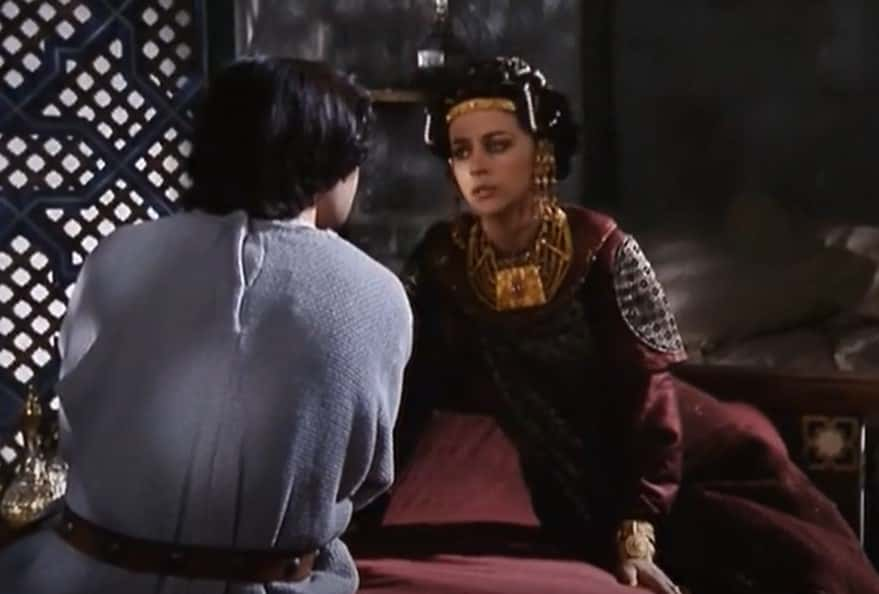 Charlemagne (1993), Pathé Télévision
Charlemagne (1993), Pathé Télévision
46. She Had An Unfortunate Predecessor
Were all Irene's outlandish gestures a way to scare off her enemies and hold onto power? If so, she may have been onto something. You see, Irene had good reason to be insecure about her future. The first Byzantine Empress, Martina, had met a horrendous fate. The people never accepted her and they showed their displeasure by slicing her tongue, chopping her sons' noses off, then exiling her.
Yeah...I can't really fault Irene for not wanting a repeat of that.
47. She Fell From Grace
The Byzantine Empire was no place to rest on your laurels, and any Emperor or Empress had to constantly be on their toes for plots against them. One day, Irene slipped up, and it cost her everything. In 802, yet another faction of rebels plotted to oust her from the throne. This time, they succeeded in replacing her—insultingly enough—with the public finance minister.
Given Irene’s ruthless reputation, they did not show mercy.
48. She Was Exiled
On October 31, Irene was officially no longer the Empress—and after her decades of courtly plotting, no one in the Empire wanted to test out having her stick around in the palace as a dowager. Instead, the victorious rebels exiled her to the remote Greek island of Lesbos, now famous as the poet Sappho’s home. Once Irene got there, her fortune fell even more.
49. She Became A Pauper
Irene had grown up beautiful, took up a position as a fantastically wealthy consort, and plotted her way into absolute power. In other words, she was not used to poverty, but that’s exactly what she got on Lesbos. Her fate was pitiful. Bereft of her jewels and her influence, the once-mighty Irene had to make ends meet by spinning wool.
50. Her End Was Swift And Sad
With this complete reversal of fortunes, it’s perhaps no surprise that the shock was too much for the former Empress, who was now somewhere in her 50s and showing signs of wear from her difficult life. In the end, Irene only survived a bare year on Lesbos after her humiliating exile, passing on August 9, 803. Sic transit gloria indeed.
Sources: 1, 2, 3, 4, 5, 6, 7, 8, 9, 10

